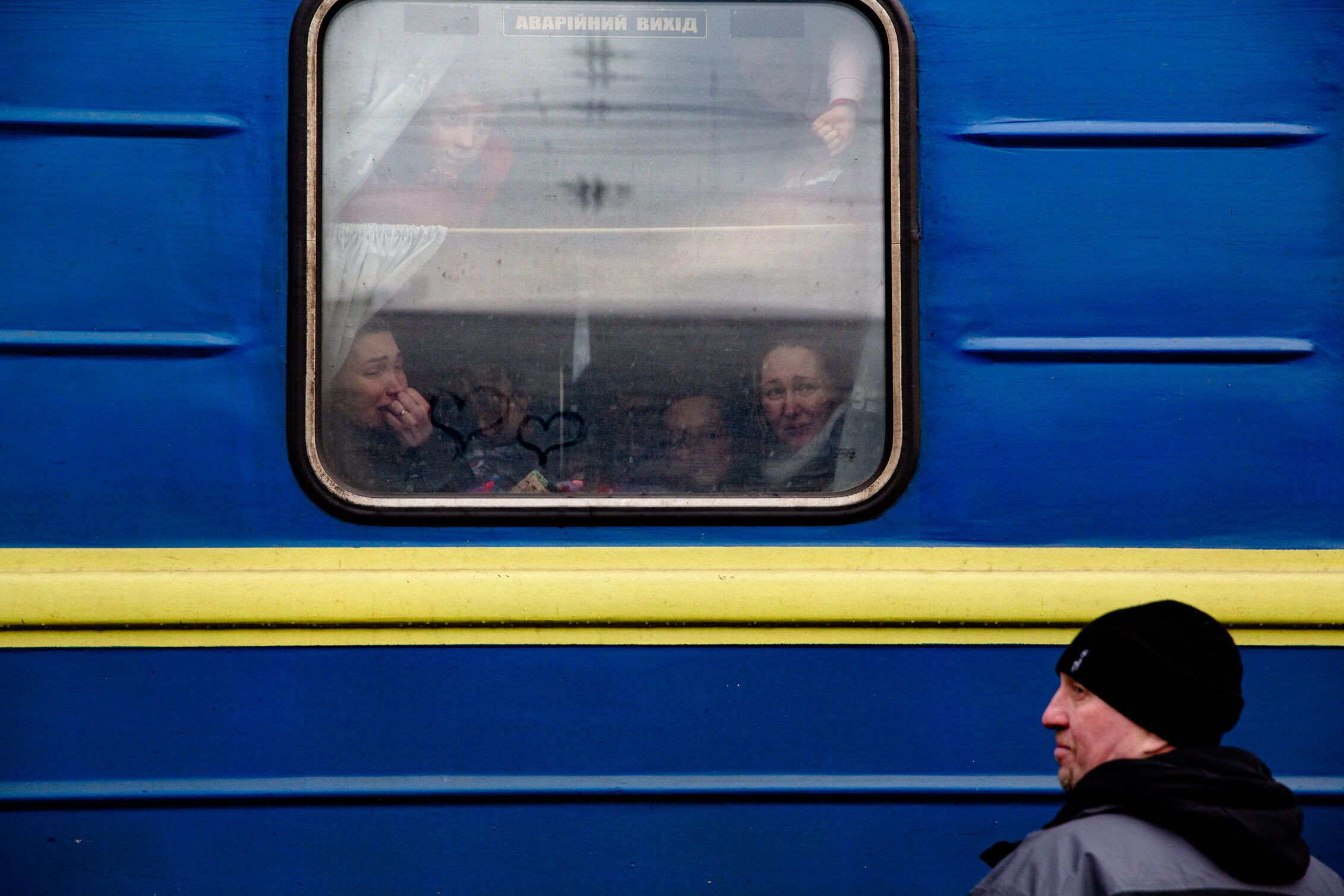More than 8,000 Ukrainians have fled to Wales after Russia invaded – here, three families share how they have been coping
IMAGINE that everything you have ever grown up around suddenly gets taken away from you.
For nearly three years, refugees who fled Ukraine have had to come to terms with that feeling of loss.
When more than 8,000 Ukrainian refugees arrived in Wales, there were several strands of life to adapt to. And they are still adjusting.
Anhelina Fesenko, 19, Viktoriia Kavabova, 53, and Tatiana Stozhok, 64, share their stories.

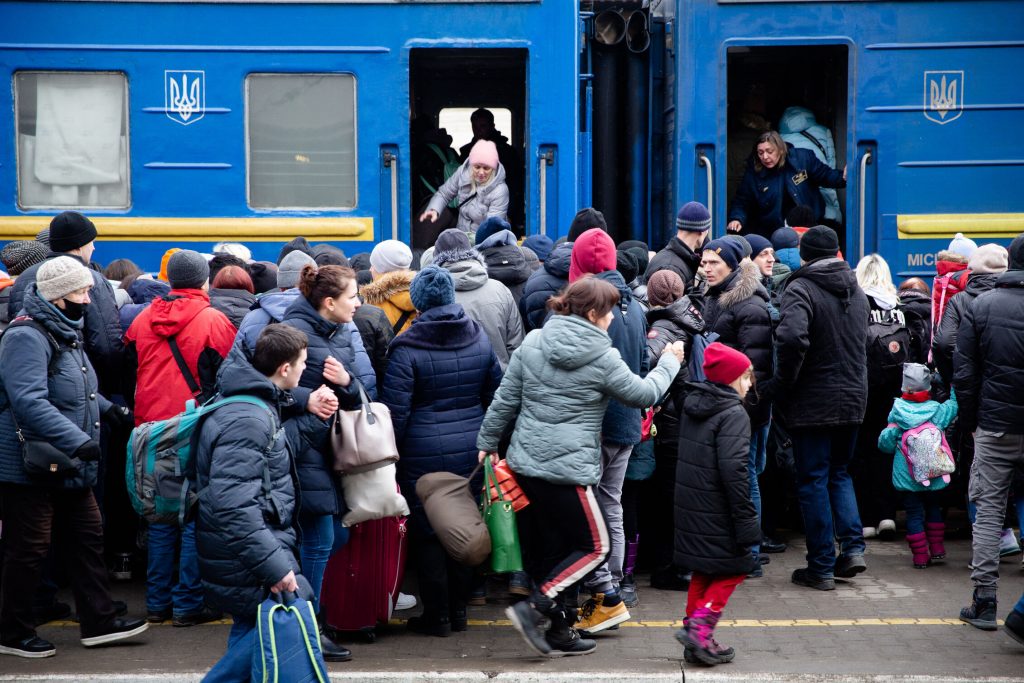
‘Moving was very difficult. We cried and were nervous’
“It was very difficult at first when we moved. We cried and were nervous. Now we’re a little bit used to being in Wales,” Viktoriia Kavabova said, with Anhelina interpreting her words from Ukrainian to English.
At the time of this interview, in November 2024, Viktoriia was living in a cramped hotel room with her 33-year-old daughter above a busy Wetherspoons in Newport city centre. She has been there for two years.
“It is of course much better than the situation in Kharkiv, but there is very little room. It is very claustrophobic.”
She continued: “It is difficult for two adult women to live in the same room. We sleep on the same bed.
“It is difficult for my daughter to go to work. She is as a cleaner. She has a bachelor’s degree in Ukraine as a pharmacist but the language barrier means it is hard for her to find another job here.”
Newport City Council said Viktoriia and her daughter have since moved into social housing.
The 53-year-old was living a peaceful life in Kharkiv with her husband and daughter when Russia invaded. Her husband had a humble construction business before the war.
“It wasn’t a perfect life back in Ukraine, but the whole transition has caused a lot of stress,” Viktoriia said.
“In Ukraine, we had the opportunity to travel, we had jobs and children would just normally go to school. But now those schools are destroyed.”
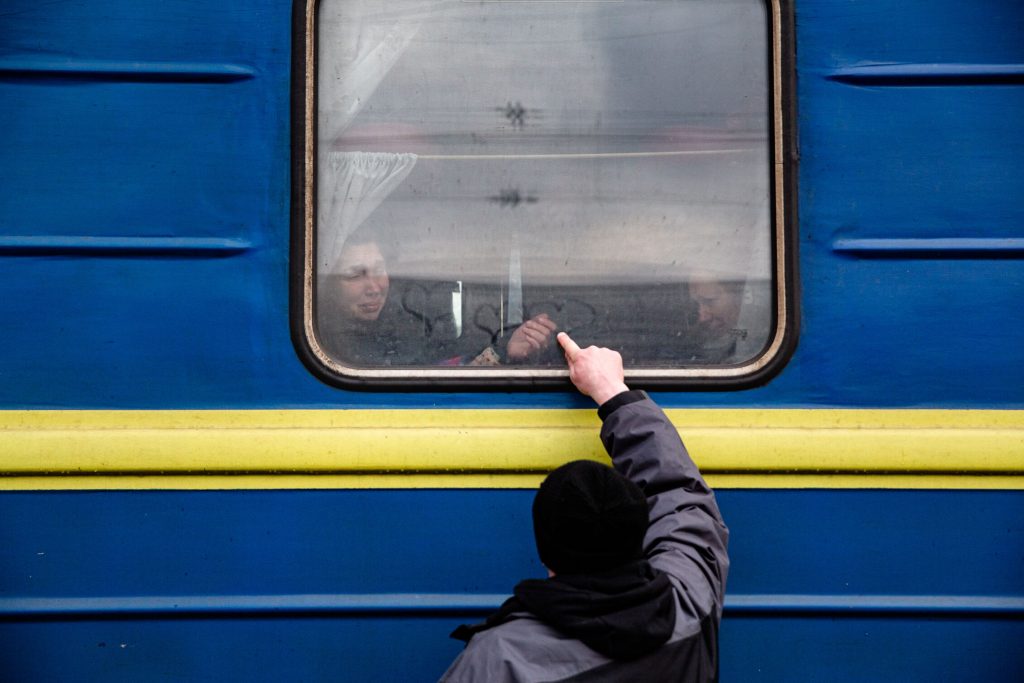
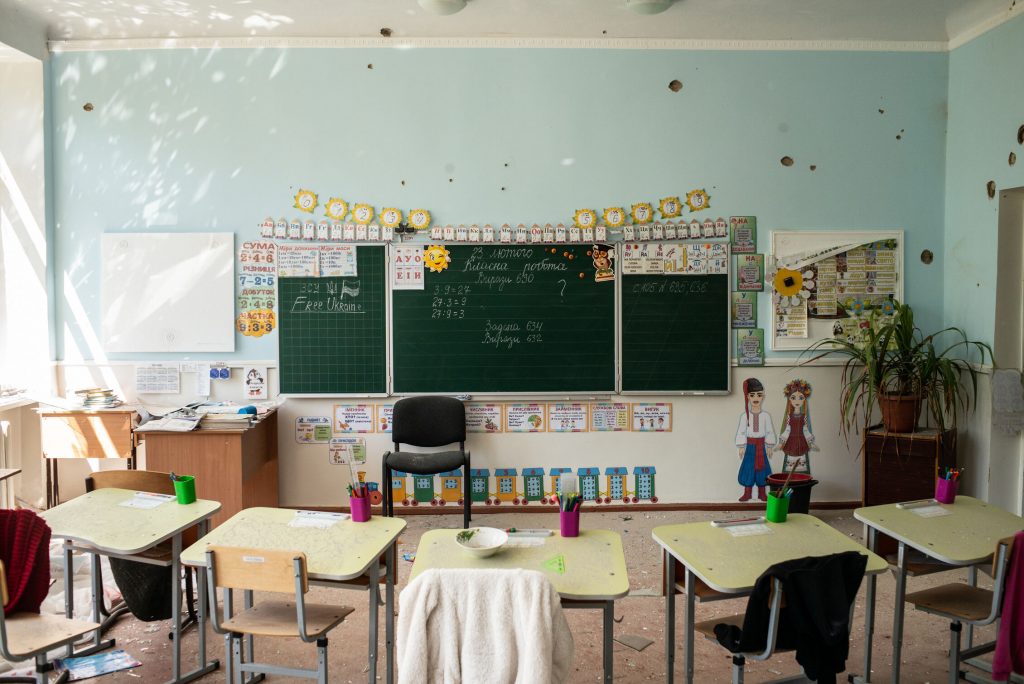
As well as their experiences of trauma fleeing the war, anxieties and problems persist even after they have fled.
Viktoriia’s husband is still in Kharkiv and is caring for her ill mother who is 79-years-old. Men are unable to leave because they are obliged to stay in Ukraine, Viktoriia explains.
“I still speak to them on the phone. They are saying the situation is bad, it’s scary. Things are getting harder and harder.”
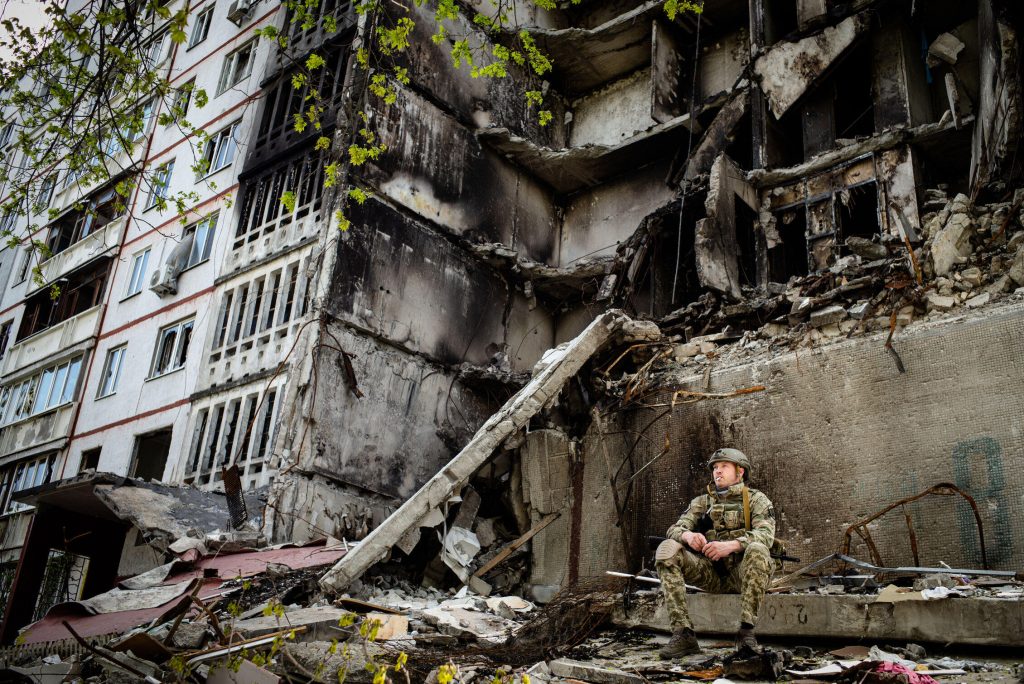
‘We arrived in Cardiff on Ukrainian Independence Day’
The younger generation have found it hard too.
“It wasn’t an easy transition. I was still at school when the war broke out,” Anhelina Fesenko said.
“My parents have also found it difficult due to the language barrier. They are on universal credit because it is hard to find work.”
Anhelina, 19, first moved to the south of France with her parents Nadiia and Oleksands, but they later moved to Cardiff on Ukrainian Independence Day on August 24, 2022. They should have been walking around Kyiv celebrating Ukrainian independence, but instead, celebrations were marked by arriving in a foreign country.
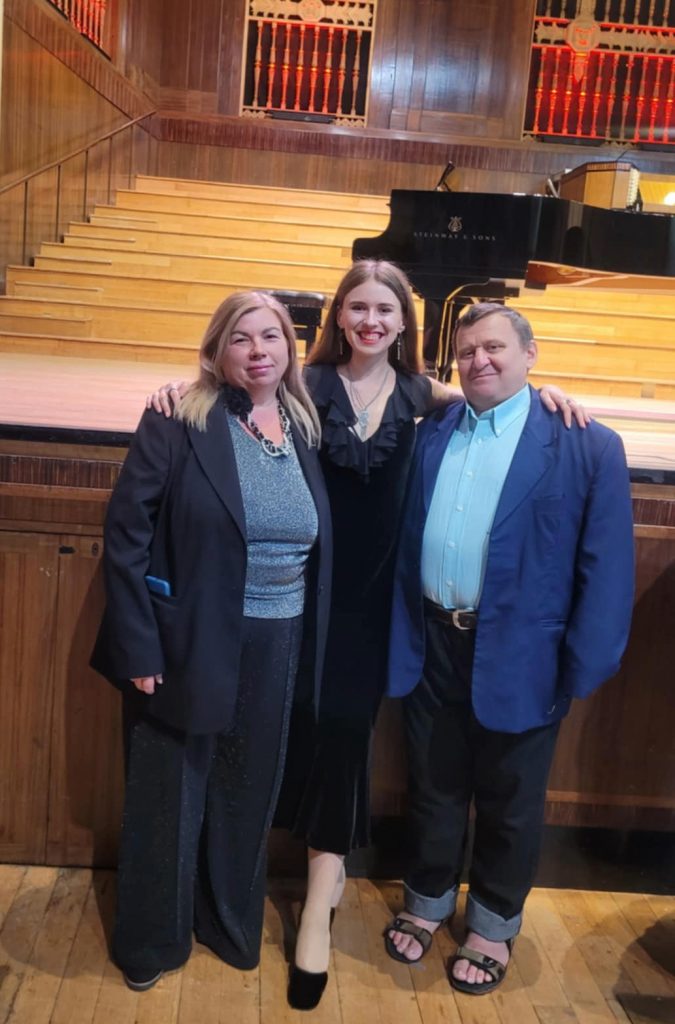
A Welsh family hosted Anhelina and her parents through the Homes for Ukraine Sponsor Scheme, but they are now renting separately.
Despite being uprooted from her life in Kyiv, Anhelina’s passion for music has kept her going and she continued to study music when finishing her studies in the UK.
She recently received a bursary to attend the Royal Welsh College of Music and Drama.
Music, Anhelina said, has given her a sense of permanence.
“I’ve been singing in a classical choir since I was young. We had performances around Kyiv, Ukraine, and we also went abroad to Poland, Czech Republic and Germany, Bulgaria before the war. Music is my main hobby,” said Anhelina.
“When I arrived, I had the chance to sing at the King’s coronation with Oasis One World Choir. I’ve also joined a few choirs here in Cardiff.”
Anhelina tells me this as a group of Ukrainian children, also refugees, sing and act as they prepare for their Ukrainian Christmas nativity play, called Vertep. It translates to “secret place”, in some ways also referring to what Wales first felt like when they first arrived.
‘We are beginning to learn to live in peace’
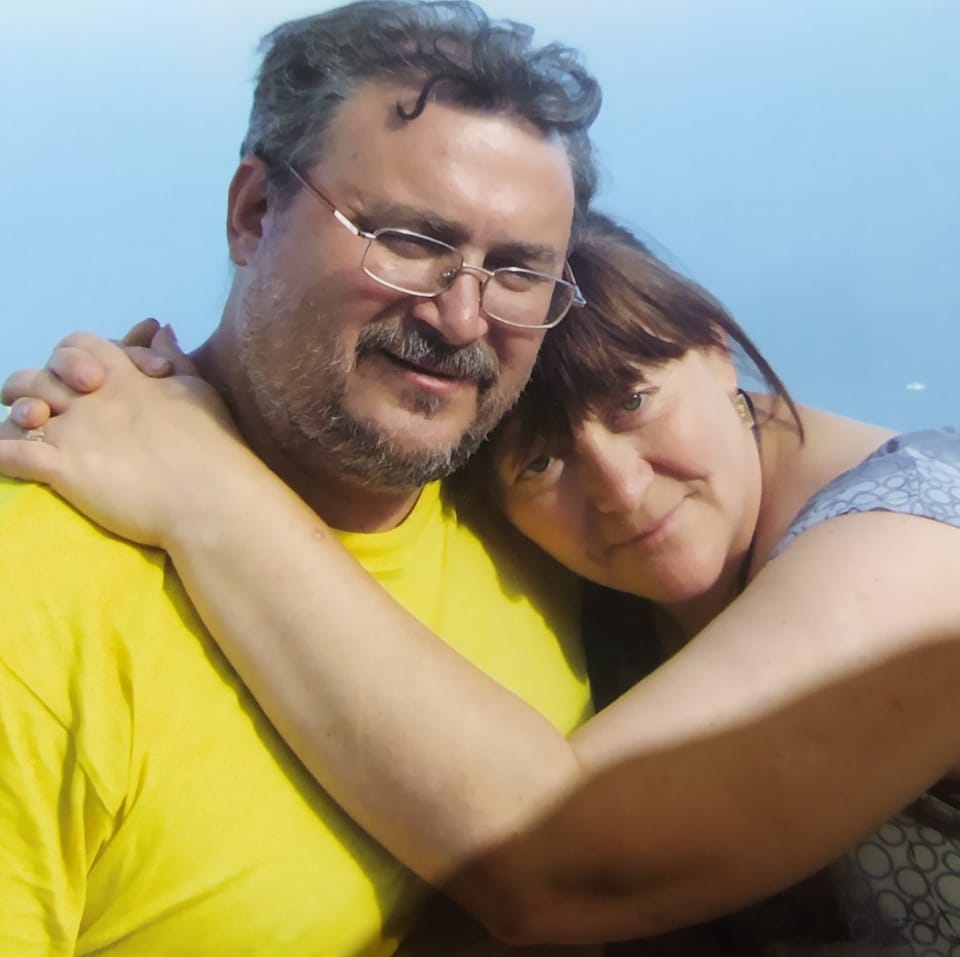
While some have adapted well to life in Wales, the sense of distance between Ukraine and Wales means isolation is inevitable. Those who stay in Ukraine face immediate danger, while those who leave face loneliness and stress.
“We don’t speak English, so it is very difficult for us to find friends and to work,” Tatiana Stozhok said, with Anhelina interpreting her words.
Tatiana fled to Cardiff with her six children, her husband and her 83-year-old mother. They were first put in an arrival centre for Ukrainians in Cardiff with fourteen other Ukrainian families. “We were fed, given water and dressed,” Tatiana said.
“All of Ukraine was very busy when we left. We rushed out of our hometown, Vasilkov, just south of Kyiv, and drove to Wales in an old, rusting minibus.
“We were leaving Ukraine as bombs dropped over our heads. It is what words cannot describe.
“My husband had a heart attack on the way here. My mother underwent four surgeries because of the stress of the war.”
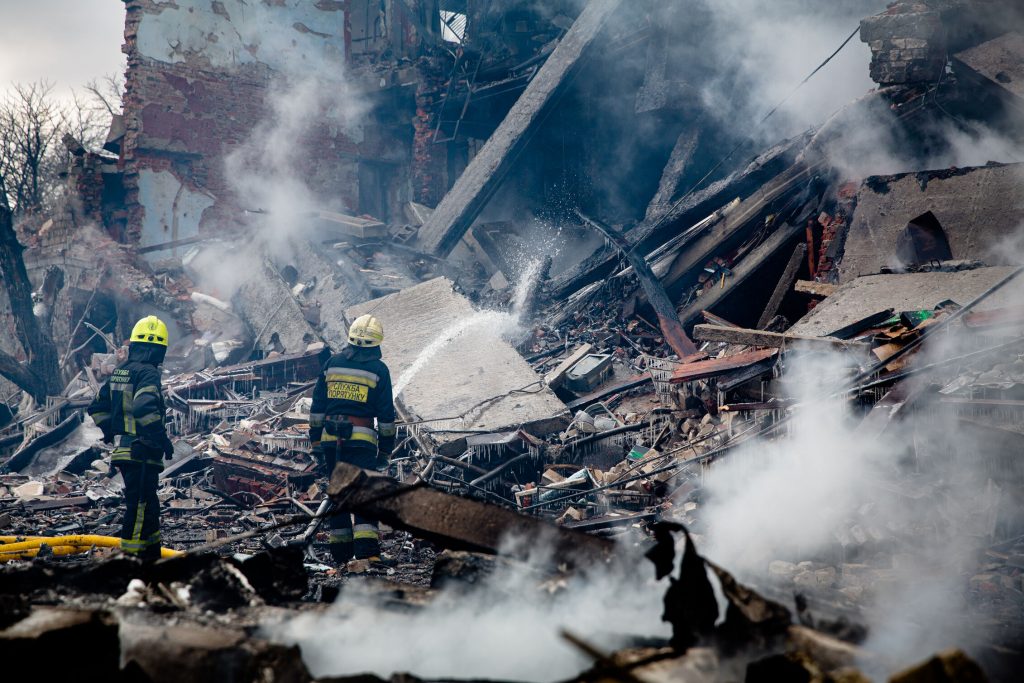
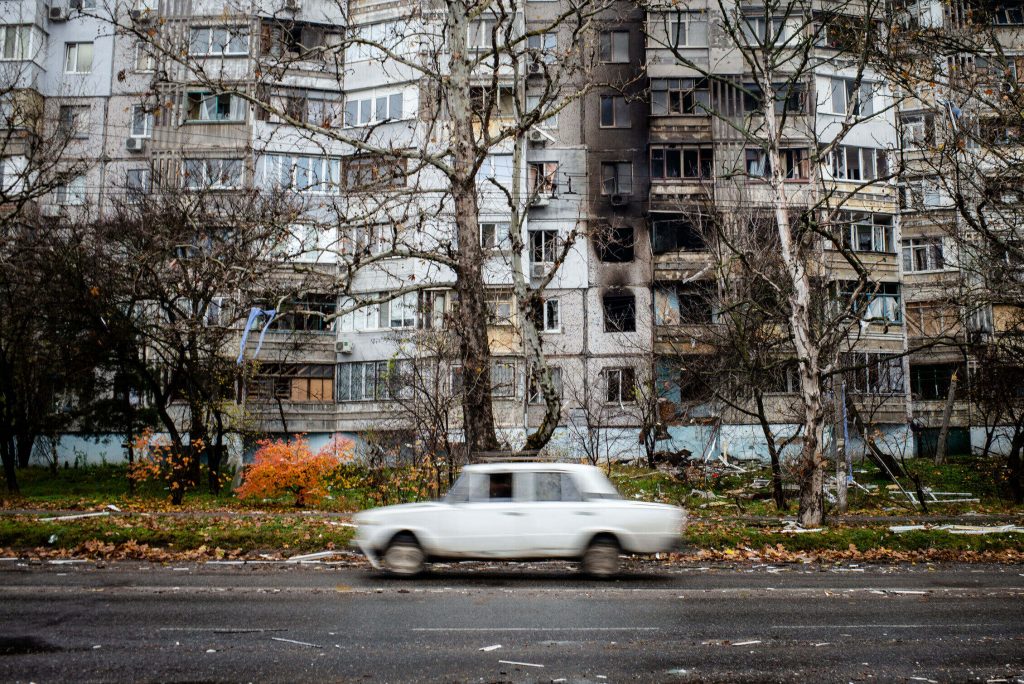
Tatiana eventually found a place to live in Port Talbot. “We rent two houses, but it’s still very difficult,” she said.
“It was easier for us to adjust because we are Christians and churches in Port Talbot helped us right away. There are a lot of parishioners. There is a children’s school there too.
“My children have adjusted well because they are sociable and love to talk to other people.”
However, Tatiana admits that while Wales has been a place of sanctuary for her family, it has not been easy.
“It feels like we are a bit lost because we don’t know all the rules and regulations. We are very constrained, not knowing the laws,” Tatiana said.
“We left everything, our homes, our lives. Putin has taken it away from us. Our lives were taken away from us, but not our identity.”
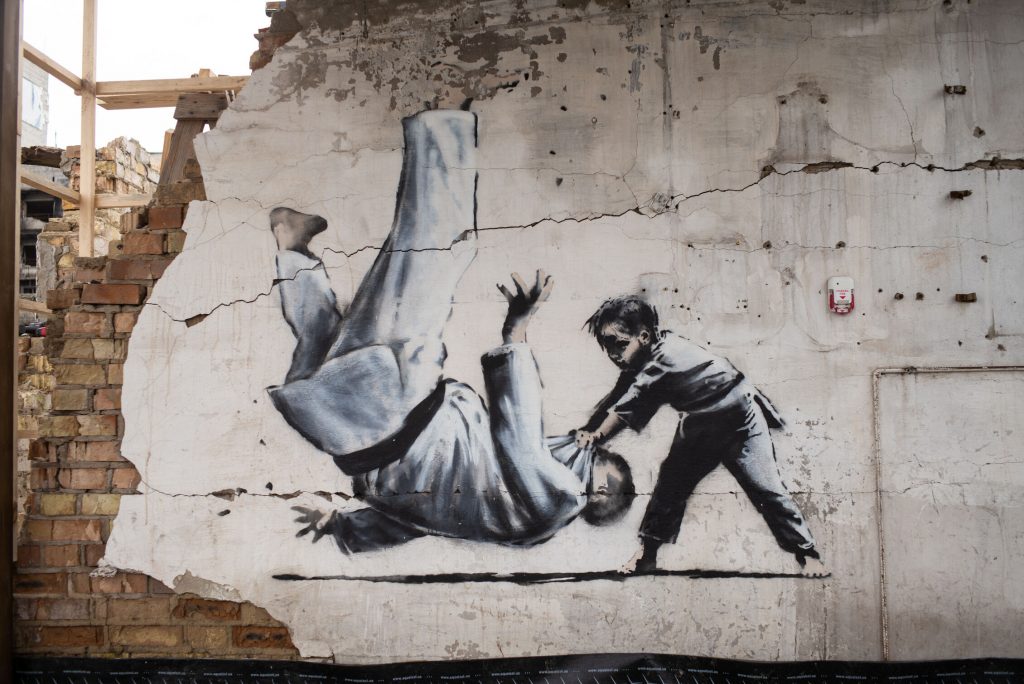
A double-edged sword of sorts, living in a new country as a refugee takes its toll. But, it also means that people are even more motivated to help others in the same situation.
The Cardiff for Ukraine Hub was set up by volunteers after the war began in order to support Ukrainian refugees.
“It is very important. You can communicate with people here,” Tatiana said.
“We need that communication. It would be more difficult if it wasn’t here. They have also provided us with furniture, dishes and bedding.
“We live under stress, but it is calmer in Wales and just being here brings us Ukrainians closer together.”
As Ukraine continues to fight for its independence, the futures of refugees like Tatiana, Anhelina and Viktoriia, as well as their families, remains uncertain.
For Tatiana, she said her family are only just “beginning to learn how to live in peace”.

Some sponsorship schemes have allowed Ukrainians to settle here in Britain but visas are soon to run out.
The Welsh Government maintains that they want everyone who claimed sanctuary “to feel safe, supported, and part of our community.”
They added:” We’re here to help them move into longer-term homes and settle into Welsh life. Whether they’re from Ukraine or anywhere else, we’re committed to making sure they find a place where they can rebuild their lives and feel they truly belong.”


